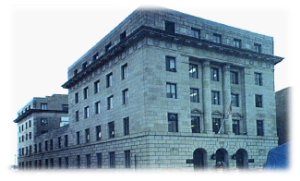 | |
| We have substantial experience in all aspects of bankruptcy law, from the smallest consumer bankruptcy to large complex business reorganizations. We take special pride in representing individuals and businesses seeking relief from creditors. We help stop foreclosures, stop wage garnishments, stop IRS and MDOR liens and seizures, stop sheriff’s levies and stop calls from collection agencies. We can help individuals and businesses thrive once again. We advise clients of the options available through the bankruptcy code and guide them through the bankruptcy process. In doing so, we provide more than legal advice; our experience and professionalism provides peace of mind. The two main consumer bankruptcies are Chapter 7 and Chapter 13. A Chapter 7 is often called a liquidation bankruptcy. In such a bankruptcy the debtor’s unsecured debts are generally discharged. An example of an unsecured debt is a credit card debt. In a Chapter 7 bankruptcy the debtor most often keeps their home and automobile. Additionally, although a bankruptcy may be reported on your credit record for as long as ten years, a debtor’s credit score will most often rise after he receives his discharge, not go down. 1 | 2 | 3 | |
 | |
